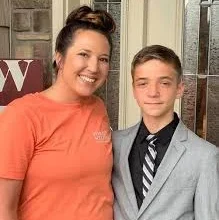The silent echoes of laughter, now distant, and the cherished belongings that once adorned a home, now absent, paint a picture of a life many may face one day. It’s a reality we often avoid discussing, but it touches tens of thousands of lives—like the story of an 82-year-old woman living in a nursing home. Her narrative, shared with honesty and grace, reflects the challenges of aging, solitude, and the importance of family bonds. This blog explores her life’s critical lessons and reflects on how future generations can honour those who paved the way for them.
When Life Slows Down & Reflection Begins
The twilight years of life bring an opportunity for introspection. For this 82-year-old woman, the changes are stark and humbling. Gone is her home, a cherished sanctuary filled with memories. Gone are the daily rituals of cooking and crafting, the activities that brought her joy and a sense of purpose. She finds herself in a 3×3 room in a nursing home, the walls of which now frame her world.
Her words paint a vivid picture of what remains:
- Caregivers who take care of her meals, health, and living space manage a structured daily routine.
- A diminishing sense of family interaction, as grandchildren who once hugged her and filled the days with chat now visit sporadically or, in some cases, not at all.
- A hobby—Sudoku—that provides fleeting moments of solace.
Yet, she also hints at her resilience. She participates in occupational therapy and lends a helping hand to others who are struggling more profoundly. She retains a remarkable capacity to give even in the face of loss.
The Challenges of Ageing & Loneliness
One of the poignant truths in her story is the loneliness that comes with age. Studies show that 22% of individuals aged 75 and older in the UK report feeling isolated. This isolation isn’t just an emotional burden—it impacts physical health, with increased risks of depression, cognitive decline, and heart issues.
Many older adults become distanced from family for various reasons. For some families, the demands of modern life make frequent visits challenging. For others, there’s an unfortunate disconnection when the bonds between generations are not nurtured.
Her life compels us to ask crucial questions:
- How often do we try to see the older members of our family?
- Are we honoring the sacrifices they made for us during their prime years?
- Are we prepared to face our own future with the understanding that we, too, may one day need care and companionship?
The Greatest Honour is Giving Back
One of the most profound messages in her narrative is this:
“Taking care of someone who has already taken care of us is the greatest honour.”
This sentiment underscores a fundamental truth—family isn’t just about having shared bloodlines. It’s about creating and maintaining relationships marked by gratitude, love, and respect. For younger generations, the time to build those bonds is now, while there’s still time to make meaningful connections.
Ways to Foster Connection with Ageing Relatives:
- Schedule Regular Visits: Even short, frequent visits can provide emotional support and a sense of belonging.
- Share Activities: Bring a favorite book, game, or even photos to relive cherished memories and create new ones together.
- Encourage Engagement: Support their hobbies or introduce them to new ones. Something as simple as a family Sudoku competition could spark joy.
- Write Letters or Send Photos: A handwritten letter or printed photo can mean far more than a text message for relatives who live far away.
- Practice Gratitude: Take time to express appreciation for their role in your life. It can be a heartfelt conversation or even a small gesture like making them a favourite dish they once cooked for you.
Lessons for the Generations to Come
One of the most striking takeaways from her story is the plea for younger generations to view family as a foundational investment for the future. Life extends, but with it comes the need for reciprocal care. The time, energy, and love given by parents and grandparents during their active years cannot be repaid in full—but honouring them with presence and care in their later years is the least we can do.
Building a Culture of Respect and Care Starts at Home
- For parents of young children, modeling respect for grandparents shows that care and connection transcend every generation.
- For community members, participating in initiatives that support elders, such as befriending services or volunteering in care homes, broadens our collective empathy.
- For policymakers and organizations, fostering systems that value intergenerational support, such as leave policies for elder care, ensures families can prioritize these relationships.
Why It Matters
Her story ends with a quiet reflection. Alone in her small room, she finds comfort in looking at family photos and the few keepsakes she brought. But her closing thought is not one of despair—it’s a vision for the future. She hopes that generations after her will understand the importance of family as not just a bond but a duty.
Her hope is also our opportunity. Whether through reinforcing relationships with loved ones or nurturing care within our communities, we can honour the lives of those who have given us our start.
Take the First Step Today
Reconnect with an elder in your family. Start a conversation, plan a visit, or ask them, “How are you feeling today?” These moments of connection, however small, are the foundation of a more compassionate society for all generations.





